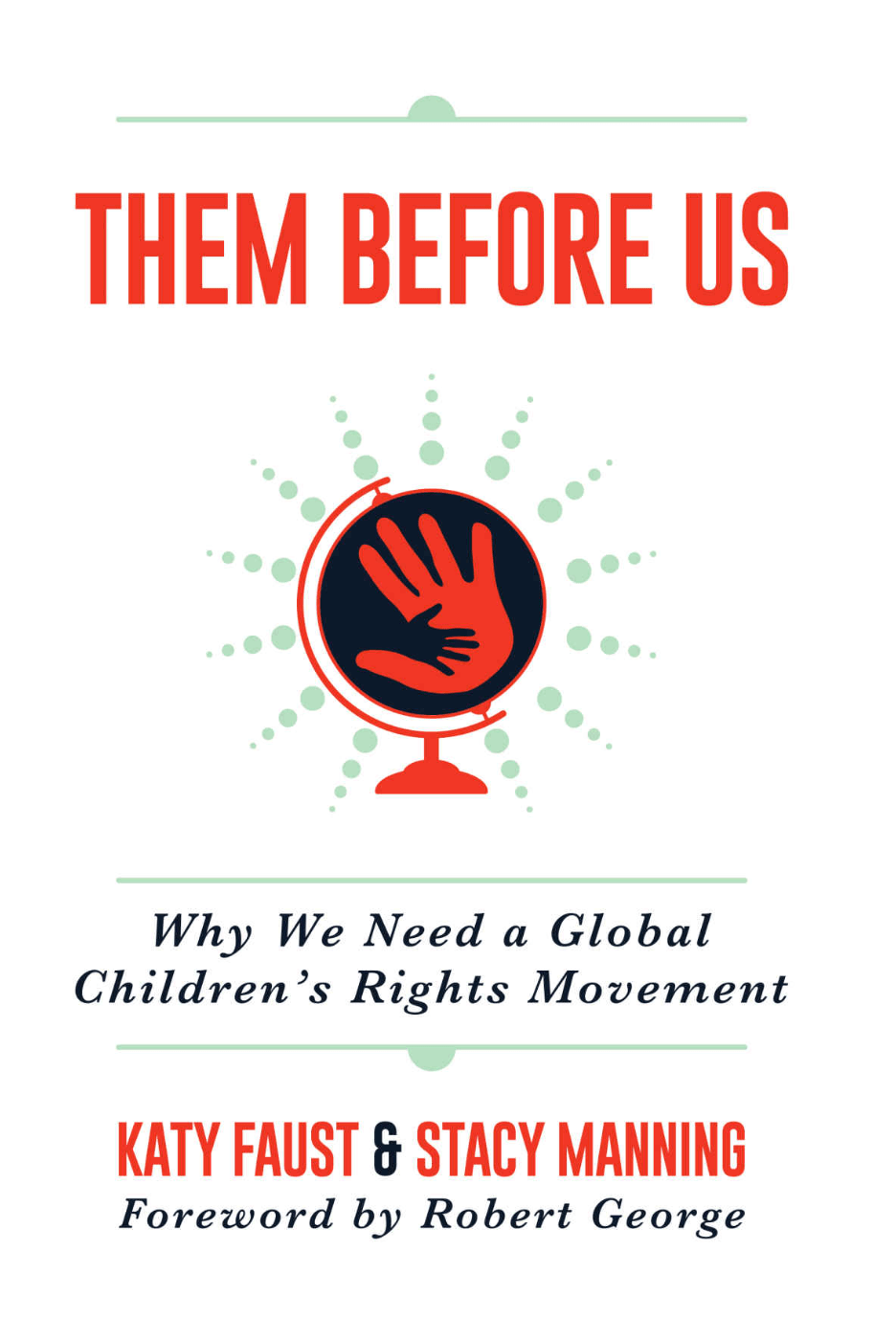In Context
Since the Sexual Revolution of the 1960s and the legislative changes that followed – especially no-fault divorce – the desires of adults have been the central concern in discussions regarding the modern family.
If an innovation to family law makes adults happier, so the logic goes, then their children must be happier too, for how can children be happy when their parents are not? Thus, over the past fifty years we have seen the rise of no-fault divorce, single parenthood, same-sex parenting, IVF, and commercial surrogacy. Overall, these have proven statistically and by testimony to be bad for children economically, psychologically, and socially.
What we need is a revolution in how we think about the family that places the needs of children above the desires of parents, a revolution that places them before us.
Big Ideas
- The modern myth: The only thing kids need to grow up healthy and happy are to be safe and loved
- We need to move away from talk of “parenting” and back towards talk of “fathering” and “mothering”, for gender matters in raising children
- One of the most unsafe situations children can find themselves in is when they are in a home that includes the (unrelated) male boyfriend of their mother,
especially when they are left alone with that boyfriend - The phrase “modern family” usually refers to family models in which the rights and needs of children have been sacrificed for the happiness of adults
- Family law needs to revolve not around adult desires, but children’s needs; and the reality is that children’s well-being hinges most on being brought up by their
biological parents in a stable household
Rights for Children
It is true that all human beings have human rights, many of which are the same: life, sustenance, freedom, education, et cetera. But there are also particular rights for particular people in certain categories. For example, rights for the disabled involve, as much as possible, ensuring that disabled citizens can fully participate in social and civic life unhindered by their particular disability.
The same goes for children.
Children have unique rights based on their particular situation and vulnerabilities. The key right for children is, when possible, to be raised by their biological mother and father in a loving but stable household. Why do children have this right? Simply because we know that such an environment is most likely to bring about their long-term flourishing; or, put negatively, the deprivation of this is most likely to lead to their long-term detriment. As a Princeton University and Brookings Institute report said, “most scholars now agree that children raised by two biological parents in a stable marriage do better than children in other family forms across a wide range of outcomes.” (31)
The upshot is that just as the rights of the disabled should be recognised in law, so the rights of children should inform and shape legislation regarding the family. Unfortunately, as Faust and Manning document, in the prosperous, (adult) happiness-centric West, this is not the case.
Gender Matters
That mothers and fathers parent differently and complementarily is an inconvenient truth in our culture that draws no qualitative distinctions between married parents, de facto parents, same-sex parents, or single parents. But gendered parenting styles have their basis in biology.
A 2019 study employed magnetic resonance imaging (MRI) scans to study humans in utero and found structural differences between male and female brains. (51) The anterior cortex, the region responsible for processing emotions – including worry – is larger in women than it is in men. This means that women have a greater capacity for worrying than men, which helps to explain why women are twice as likely to be diagnosed with anxiety disorders, but also the nurturing, risk averse parenting style of mothers. (56-57) Testosterone in men fuels competitiveness and risk-taking. Nurturing, competitiveness, and risk-taking are essential aspects to bringing up a child in safety but not so safely that the child will not be able to engage successfully in an often-scary world.
But the importance of both a mother and a father is not just about parenting styles, it’s about children needing emotional connection with both male and female parents. Faust and Manning offer quotes from interviews with adults who recollect the loss they felt as children being deprived of the presence of either a mother or a father.
The impact of fatherlessness on young men is especially well documented. Mothers are good at setting boundaries, whereas fathers are good at enforcing them. Play and roughhousing with fathers also provides a healthy outlet for aggression. “The evidence tells us “toxic” masculinity is not a result of Dad’s influence, it’s a result of Dad’s absence.” (66)
Biological Parents Matter
Studies carried out over decades reveal that the bond between parents and children is strongest when it is complemented by biology. For example, one Canadian study that looked at fatal beatings between 1974 and 1990 discovered that, appallingly, children were 120 times more likely to be beaten to death by their stepfather or mother’s live-in boyfriend then they were at the hand of their genetic father. (36-37)
Another study published in 2005 showed that young children who live in a household with an unrelated adult are at a nearly 50-fold risk of suffering a fatal inflicted injury. (37) A 2010 study showed that children living with their mother’s boyfriend are “about 11 times more likely to be sexually, physically, or emotionally abused than children living with their married biological parents.” (37)
Reflecting on all the data, the authors quote prominent family sociologist W. Bradford Wilcox, who says one of the most unsafe situations children can find themselves in is when they are in a home that includes the (unrelated) male boyfriend of their mother. (32)
The tragic and inconvenient truths continue when we look at studies of emotional connection between non-biological parents and children: they are weaker than biological kin. A 2011 Pew Research Center study showed that, though no fault of their own, stepparents are not as emotionally tied to their partner’s children than they are to their own offspring. (39) Faust and Manning also provide testimony from such parents and stepchildren testifying the same. Sadly, studies also indicate that stepparents are less likely to invest money and time into the health and general well-being of their dependent stepchildren (41-43)
Big Fertility
Big Fertility is the industry that has increasingly stepped in to facilitate pro-creation with the rise of openly same-sex couples, single-by-choice mothers, and the ageing demographic of parenthood. It includes IVF and surrogacy. Whether a child is born to a surrogate mother or via IVF, we are talking about a child that probably will never know one of his/her parents.
Big Fertility is almost completely unregulated, and pretty much anyone can become a parent, and the potential impacts of it on the children don’t figure at all in the industry’s practices.
Unfortunately, there are hardly any large long-term studies on how children of Big Fertility fare in the long run. But there is at least one, published in 2010, discussed in Them Before Us. This 2010 study affirmed that young adults conceived through sperm donation:
- Experience profound struggles with their origins and identity
- Have family relationships more often characterised by confusion, tension, and loss
- Have experienced divorce and multiple family transitions in their families of origin
- Struggle with serious negative outcomes, such as delinquency, substance abuse, and depression (150)
AnonymousUs.org is a website for donor-conceived people to share their stories without fear.
Commercial surrogacy is another growing industry not just in the developing world but also in some US states. Among other problems, surrogate pregnancies are more likely to end in pre-natal death, and also in increased health risks for the children. Much of this is owing to “genetic dissimilarity” between the carrying mother and the embryo, which is frequently treated by the carrier’s body as an alien entity. Thus, surrogate children are more likely to be prematurely born – which comes with its own set of health risks – as well as lighter in weight and suffer higher levels of distress as children. (186)
There is also the problem of potential parents treating surrogacy as though it’s a commercial transaction so much so that if they are unhappy with the “product” they simply don’t take it home. Down syndrome or otherwise disabled children can simply be abandoned to their, usually poor, surrogate mothers by the commissioning parents. All of this is documented in the book.
Commentary
Them Before Us is an important, evidence-based critique of our culture’s preoccupation with adult happiness even at the cost of children’s welfare. It is also a call to reinvigorate the health of marriage and the practice of adoption, as opposed to IVF and surrogacy.
Each chapter comes with policy upshots, which makes the book practical and useful beyond its highly informative qualities. (228-235) The book also issues a challenge to all readers, a challenge that is worth quoting in full:
Over the next months and years, in the name of equality, your state or country will seek measures to erase the words “mother” and “father” from marriage and parenthood laws. To put Them Before Us you must take a public stand in opposition….If we are to have a shot at mitigating the damage this progressive battleship is doing to the rights of children, you have to actively champion the cause and be ready to defend the importance of mothers and fathers in the face of an angry friend or outraged Twitter mob. (142)
If, as Faust and Manning say, civilisation depends on good mothers and fathers working together to raise children, then their challenge is imperative.




